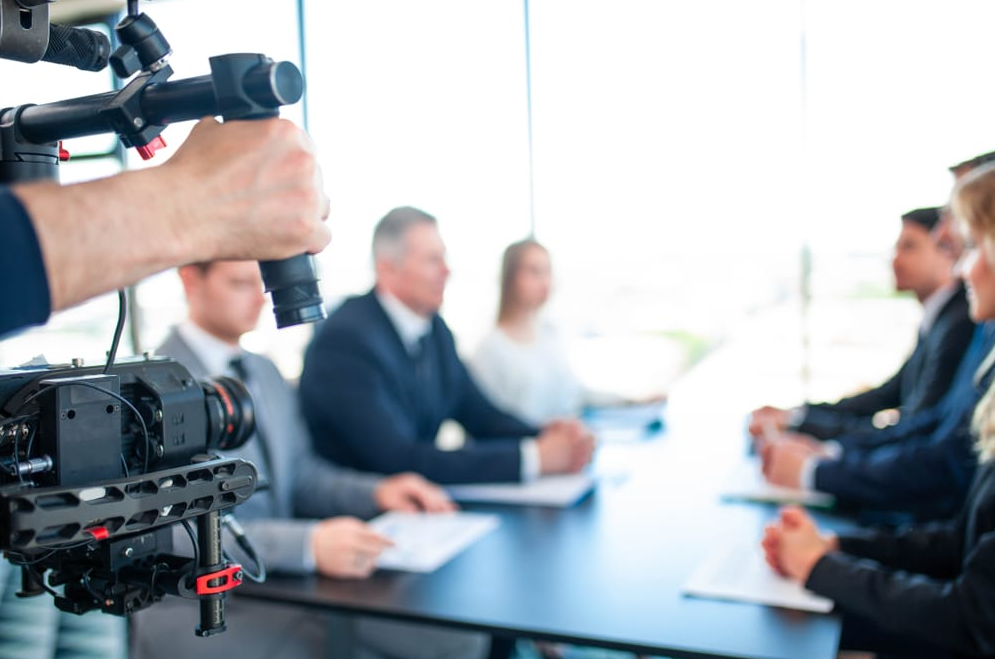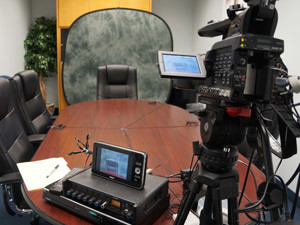Affordable Legal Videography Solutions for Attorneys.
Affordable Legal Videography Solutions for Attorneys.
Blog Article
The Role of Lawful Videography in Depositions and Trials
Lawful videography has actually arised as a vital device in both depositions and trials, supplying a complex strategy to documenting witness testimonies. As lawful specialists significantly identify its value, it prompts a deeper exam of how these visual records can influence juror perceptions and test end results.
Relevance of Lawful Videography
Legal videography plays an essential function in the paperwork and discussion of depositions and trials. This customized area integrates technological skills with legal expertise to produce a reputable record of procedures that can dramatically affect case results. The appearance of legal videography boosts the understanding of witness statement, enabling jurors and judges to observe not just the talked words however also the temperament, emotions, and body movement of the witnesses.

The relevance of lawful videography expands beyond the court; it additionally plays an important function in protecting proof for future recommendation, whether for charms or more legal activity. Its integration right into the lawful procedure is vital for making sure a reasonable and exact depiction of the facts, eventually adding to the quest of justice.

Refine of Legal Videography
While capturing the nuances of depositions and trials, the procedure of lawful videography includes several vital steps that make sure top notch, exact recordings. Originally, a specialist lawful videographer prepares by assessing the instance materials and recognizing the specific requirements of the deposition or trial. This prep work includes familiarizing themselves with the individuals and the context, which helps in catching important details.
On the day of the recording, the videographer establishes up the required devices, which normally consists of high-definition electronic cameras, microphones, and proper illumination. Ensuring ideal angles and audio high quality is essential, as it straight impacts the effectiveness of the recording. The videographer connects with attorneys and individuals to develop procedures, making certain that every person understands the recording process.
Throughout the deposition or trial, the videographer carefully records the procedures, paying very close attention to both spoken and non-verbal hints. legal videography. This includes recording the attitude and reactions of witnesses and attorneys. After the session ends, the videographer might modify the footage for clearness and compliance with lawful standards, creating an end product that accurately mirrors the proceedings for future referral and use in legal contexts
Advantages in Depositions
The unification of videography in depositions offers numerous advantages that boost the overall procedure of gathering evidence. One primary benefit is the ability to capture witness statements with visual and auditory fidelity, providing a much more precise depiction of the witness's attitude, tone, and body language. This multidimensional technique permits attorneys and juries to analyze trustworthiness better than typical written transcripts alone.
In addition, videographed depositions offer as a powerful tool for protecting testament. Should a witness ended up being unavailable for test, their taped deposition can be played in court, making certain that their evidence continues to be available and pertinent. This aspect significantly reduces the threat of losing essential info that can influence situation end results.
Furthermore, the use of legal videography promotes better preparation for attorneys. Assessing video clip footage allows lawful groups to assess and refine their strategies, identifying toughness and weak points in their situations. This primary advantage can result in more compelling discussions in court.
Lastly, videography boosts the general professionalism and trust of the deposition procedure, instilling self-confidence in clients concerning the thoroughness of their legal representation. By leveraging technology, legal professionals can significantly boost the efficiency of depositions.
Influence On Tests
In numerous tests, the assimilation of videography can considerably influence the click resources presentation of proof and the court's understanding. Legal videography captures witness statements and vital proof in a dynamic layout, permitting jurors to engage with the material on numerous degrees. This visual component boosts the storytelling element of a trial, supplying context and emotional resonance that standard text-based evidence might lack.
In addition, video recordings can serve as effective devices for impeachment during cross-examination. When inconsistencies arise in between a witness's prior statements and their court statement, video clip evidence offers an unbiased recommendation that can guide jurors' opinions. This immediacy and quality can boost the reliability of an event's story while all at once weakening opposing disagreements.
Additionally, using videography can help improve intricate details, making it extra accessible to jurors who might struggle to comprehend elaborate information provided only through spoken testament. By incorporating visuals with auditory information, legal videography can enhance retention and understanding, eventually influencing the jury's decision-making article procedure. For that reason, the influence of videography in trials prolongs past plain visual appeals; it plays a critical function fit the lawful landscape and results.
Future Trends in Legal Videography
As we look toward the future of lawful videography, several emerging patterns assure to reshape its duty within the court. One substantial pattern is the integration of artificial intelligence (AI) in video clip analysis and editing - legal videography. AI can streamline the process of determining crucial minutes in tape-recorded depositions, enabling attorneys to quickly access pertinent content, thus enhancing efficiency in instance preparation
Additionally, the rise of online reality (VR) and augmented truth (AR) innovations is anticipated to transform how jurors experience proof. By submersing jurors in a substitute setting, these innovations can offer a more extensive understanding of intricate situations, leading to even more educated considerations.

Additionally, the boosting demand for remote depositions, accelerated by the COVID-19 pandemic, will likely continue. Legal videographers will need to adjust to new software and systems to make sure top quality recordings in digital setups.
Finally, the growing focus on information protection will certainly demand more stringent methods for keeping and sharing video evidence. As the lawful landscape progresses, lawful videographers have to stay abreast of these fads to keep their significance and effectiveness in the judicial process.

Final Thought
In summary, legal videography serves an essential advice function in the judicial process, boosting the stability of depositions and tests. As technology continues to evolve, lawful videography is poised to more change its role within the legal landscape.
Report this page